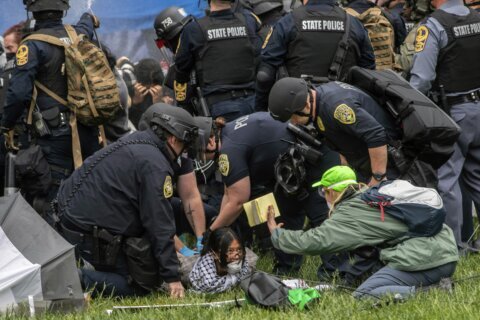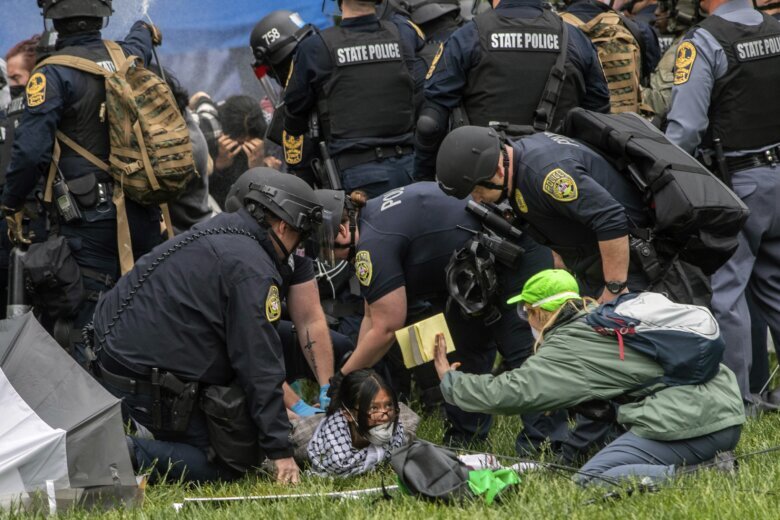
The Virginia House of Delegates has formed a select committee on maintaining campus safety and allowing students to exercise their First Amendment rights, after more than 125 arrests at four of Virginia’s college campuses.
According to Sen. Ghazala Hashmi, D-Richmond, the Senate will announce its plans to form a similar committee on Tuesday.
“I’ve heard very different scenarios from those who were on the ground and in encampments either as students or as community members that were part of those protests,” Hashmi said. “I think it’s important to get a very clear picture of what’s happened.”
Demonstrators and faculty members have criticized law enforcement and college administrators for their handling of anti-war protests, including using pepper spray to clear encampments. While the majority of the protests in Virginia have called for a cease-fire in the ongoing conflict between Israel and Hamas militants and have drawn attention to the deaths of thousands of Israeli and Palestinian citizens, some demonstrators have also claimed that protests have connections to antisemitic activity on campuses, WRIC reports.
Hashmi, who serves as chair of the Senate Education and Health Committee, said on Monday she wants a more precise picture of how the protests unfolded after hearing various reports about the demonstrations that have yielded 80 student arrests at the University of Mary Washington, Virginia Commonwealth University, Virginia Tech and the University of Virginia over the Israel-Hamas war.
On Saturday, several graduating students walked out at the start of Gov. Glenn Youngkin’s keynote address at VCU’s commencement ceremony after he expressed his support of law enforcement’s response to campus demonstrations at Virginia’s colleges.
Two days later, the House announced a 12-member select committee would be formed to provide potential legislative recommendations.
House Speaker Don Scott, D-Portsmouth, said in a letter that Virginia must understand the policies allowing students to exercise their protected right to free speech while maintaining campus safety.
“It is imperative that we understand the protocol followed and resources used by our local and state police when requests for assistance are made by our institutions of higher education,” Scott wrote. “We should identify areas where we can improve state policies in order to mitigate the incidents of unrest and arrest that we have witnessed this spring.”








